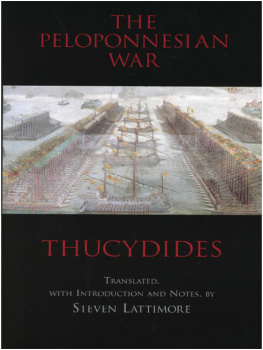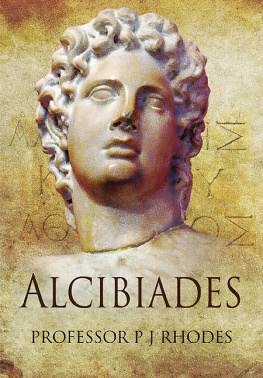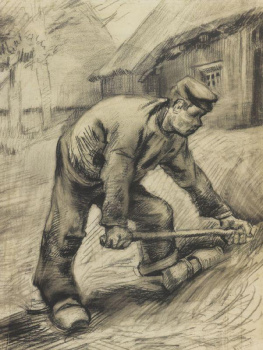Steven Pressfield - Tides of War, a Novel of Alcibiades and the Peloponnesian War
Here you can read online Steven Pressfield - Tides of War, a Novel of Alcibiades and the Peloponnesian War full text of the book (entire story) in english for free. Download pdf and epub, get meaning, cover and reviews about this ebook. genre: Adventure. Description of the work, (preface) as well as reviews are available. Best literature library LitArk.com created for fans of good reading and offers a wide selection of genres:
Romance novel
Science fiction
Adventure
Detective
Science
History
Home and family
Prose
Art
Politics
Computer
Non-fiction
Religion
Business
Children
Humor
Choose a favorite category and find really read worthwhile books. Enjoy immersion in the world of imagination, feel the emotions of the characters or learn something new for yourself, make an fascinating discovery.

- Book:Tides of War, a Novel of Alcibiades and the Peloponnesian War
- Author:
- Genre:
- Rating:4 / 5
- Favourites:Add to favourites
- Your mark:
- 80
- 1
- 2
- 3
- 4
- 5
Tides of War, a Novel of Alcibiades and the Peloponnesian War: summary, description and annotation
We offer to read an annotation, description, summary or preface (depends on what the author of the book "Tides of War, a Novel of Alcibiades and the Peloponnesian War" wrote himself). If you haven't found the necessary information about the book — write in the comments, we will try to find it.
Steven Pressfield: author's other books
Who wrote Tides of War, a Novel of Alcibiades and the Peloponnesian War? Find out the surname, the name of the author of the book and a list of all author's works by series.
Tides of War, a Novel of Alcibiades and the Peloponnesian War — read online for free the complete book (whole text) full work
Below is the text of the book, divided by pages. System saving the place of the last page read, allows you to conveniently read the book "Tides of War, a Novel of Alcibiades and the Peloponnesian War" online for free, without having to search again every time where you left off. Put a bookmark, and you can go to the page where you finished reading at any time.
Font size:
Interval:
Bookmark:
Steven Pressfield
Tides of War, a Novel of Alcibiades and the Peloponnesian War
EPIGRAPH
the worst enemies of Athens are not those who, like you, have only harmed her in war, but those who have forced her friends to turn against her. The Athens I love is not the one which is wronging me now, but that one in which I used to have secure enjoyment of my rights as a citizen. That country that I am attacking does not seem to be mine any longer; it is rather that I am trying to recover a country that has ceased to be mine. And the man who really loves his country is not the one who refuses to attack it when he has been unjustly driven from it, but the man whose desire for it is so strong that he will shrink from nothing in his efforts to get back there again.
Alcibiades addressing the Spartan Assembly, in Thucydides'
History of the Peloponnesian War
She [Athens] loves, and hates, and longs to have him back
Aristophanes, on Alcibiades, in The Frogs
I
My grandfather, Jason the son of Alexicles of the district of Alopece, died just before sunset on the fourteenth day of Boedromion, one year past, two months prior to his ninety-second birthday. He was the last of that informal but fiercely devoted circle of comrades and friends who attended the philosopher Socrates.
The span of my grandfather's years ran from the imperial days of Pericles, the construction of the Parthenon and Erechtheum, through the Great Plague, the rise and fall of Alcibiades, and the full tenure of that calamitous twenty-seven-year conflagration called in our city the Spartan War and known throughout greater Greece, as recorded by the historian Thucydides, as the Peloponnesian War.
As a young man my grandfather served as a sail lieutenant at Sybota, Potidaea, and Scione and later in the East as a trierarch and squadron commander at the battles of Bitch's Tomb, Abydos (for which he was awarded the prize of valor and incidentally lost an eye and the use of his right leg), and the Arginousai Islands. As a private citizen he spoke out in the Assembly, alone save Euryptolemus and Axiochus, against the mob in defense of the Ten Generals. In his years he buried two wives and eleven children. He served his city from her peak of preeminence, mistress of two hundred tributary states, to the hour of her vanquishment at the hands of her most inclement foes. In short he was a man who not only witnessed but participated in most of the significant events of the modern era and who knew personally many of its principal actors.
In the waning seasons of my grandfather's life, when his vigor began to fail and he could move about only with the aid of a companion's arm, I took to visiting him daily. There appears ever one among a family, the physicians testify, whose disposition invites and upon whom falls the duty to succor its elderly and infirm members.
To me this was never a chore. Not only did I hold my grandfather in the loftiest esteem, but I delighted in his society with an intensity that frequently bordered upon the ecstatic. I could listen to him talk for hours and, I fear, tired him more severely than charity served with my inquiries and importunities.
To me he was like one of our hardy Attic vines, assaulted season after season by the invader's torch and ax, blistered by summer sun, frost-jacketed in winter, yet unkillable, ever-enduring, drawing strength from deep within the earth to yield up despite all privations or perhaps because of them the sweetest and most mellifluent of wines. I felt keenly that with his passing an era would close, not alone of Athens' greatness but of a caliber of man with whom we contemporary specimens stood no longer familiar, nor to whose standard of virtue we could hope to obtain.
The loss to typhus of my own dear son, aged two and a half, earlier in that season, had altered every aspect of my being.
Nowhere could I discover consolation save in the company of my grandfather. That fragile purchase we mortals hold upon existence, the fleeting nature of our hours beneath the sun, stood vividly upon my heart; only with him could I find footing upon some stony but stabler soil.
My regimen upon those mornings was to rise before dawn and, summoning my dog Sentinel (or, more accurately, responding to his summons), ride down to the port along the Carriage Road, returning through the foothills to our family's mains at Holm Oak Hill. The early hours were a balm to me. From the high road one could see the naval crews already at drill in the harbor. We passed other gentlemen upon the track to their estates, saluted athletes training along the roads, and greeted the young cavalrymen at their exercises in the hills. Upon completion of the morning's business of the farm, I stabled my mount and proceeded on foot, alone save Sentinel, up the sere olive-dotted slope to my grandfather's cottage.
I brought him his lunch. We would talk in the shade of the overlook porch, or sometimes simply sit, side by side, with Sentinel reclining on the cool stones between us, saying nothing.
Memory is a queer goddess, whose gifts metamorphose with the passage of the years, my grandfather observed upon one such afternoon. One cannot call to mind that which occurred an hour past, yet summon events seventy years gone, as if they were unfolding here and now.
I interrogated him, often ruthlessly I fear, upon these distant holdings of his heart. Perhaps for his part he welcomed the eager ear of youth, for once launched upon a tale he would pursue its passage, like the tireless campaigner he was, in detail to its close.
In his day the scribe's art had not yet triumphed; the faculty of memory stood unatrophied. Men could recite extended passages from the Iliad and Odyssey, quote stanzas of a hundred hymns, and relate passage and verse of the tragedy attended days previous.
More vivid still stood my grandfather's recollection of men. He remembered not alone friends and heroes but slaves and horses and dogs, even trees and vines which had graven impress upon his heart. He could summon the memory of some antique sweetheart, seventy-five years gone, and resurrect her mirage in colors so immediate that one seemed to behold her before him, yet youthful and lovely, in the flesh.
I inquired of my grandfather once, whom of all the men he had known he adjudged most exceptional.
Noblest, he replied without hesitation, Socrates. Boldest and most brilliant, Alcibiades. Bravest, Thrasybulus, the Brick.
Wickedest, Anytus.
Impulse prompted a corollary query. Was there one whom memory has driven deepest? One to whom you find your thoughts returning? At this my grandfather drew up. How odd that I should ask, he replied, for yes, there was one man who had, for cause to which he could not give name, been of late much upon his mind. This individual, my grandfather declared, stood not among the ranks of the celebrated or the renowned; he was neither admiral nor archon, nor would his name be found memorialized among the archives, save as a dark and self-condemned footnote.
Of all I knew, this man could not but be called the most haunted. He was an aristocrat of the district of Acharnae. I helped to defend him once, on trial for his life.
I was intrigued at once and pressed my grandfather to elaborate.
He smiled, declaring that to launch upon this enterprise may take many hours, for the events of the man's tale transpired over decades and covered on land and sea most of the known world.
Such prospect, far from daunting me, made me the more eager to hear. Please, I entreated; the day is well spent, but let us at least make a beginning.
You're a greedy whelp, aren't you?
To hear you speak, Grandfather, the greediest.
He smiled. Let us start, then, and see where the tale takes us.
Font size:
Interval:
Bookmark:
Similar books «Tides of War, a Novel of Alcibiades and the Peloponnesian War»
Look at similar books to Tides of War, a Novel of Alcibiades and the Peloponnesian War. We have selected literature similar in name and meaning in the hope of providing readers with more options to find new, interesting, not yet read works.
Discussion, reviews of the book Tides of War, a Novel of Alcibiades and the Peloponnesian War and just readers' own opinions. Leave your comments, write what you think about the work, its meaning or the main characters. Specify what exactly you liked and what you didn't like, and why you think so.











